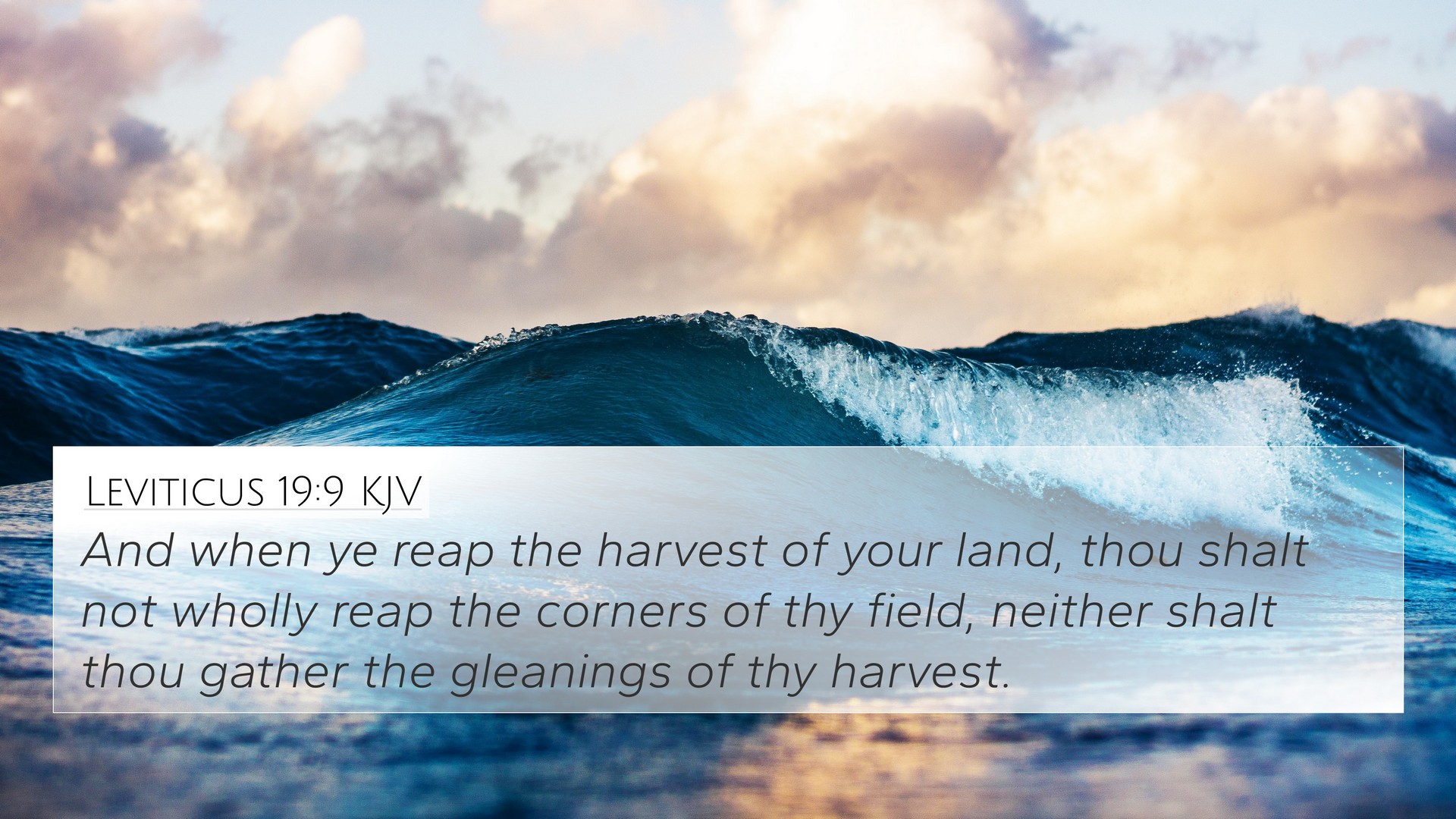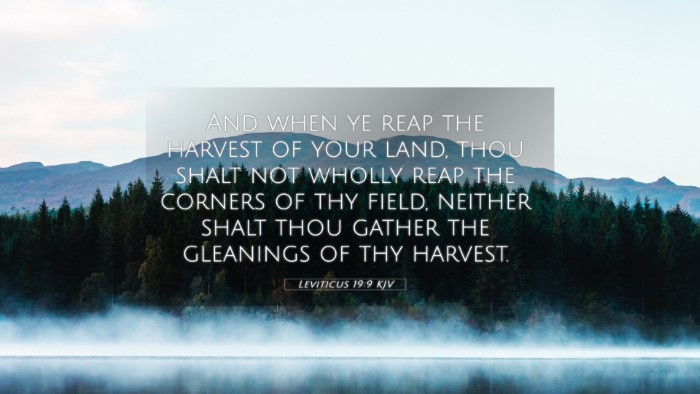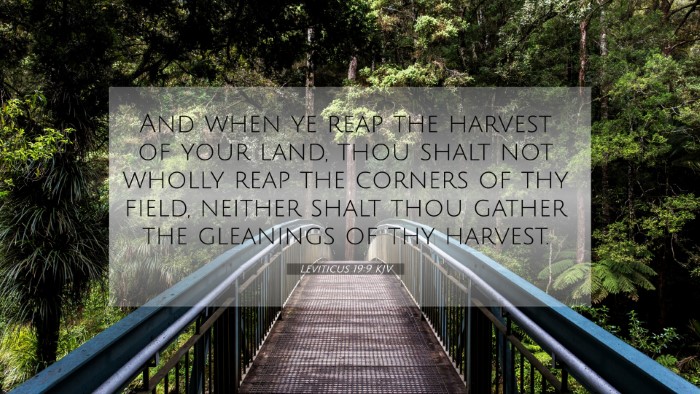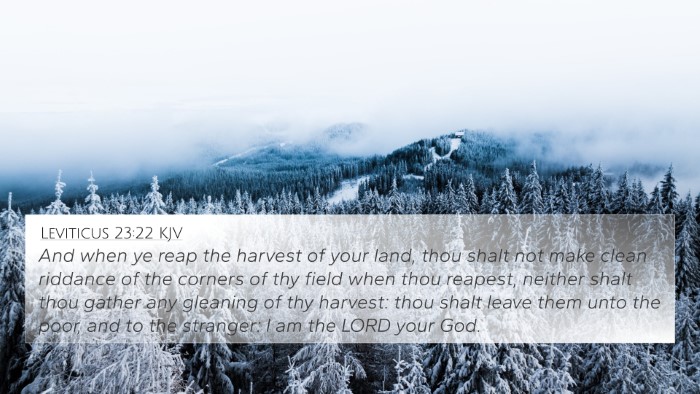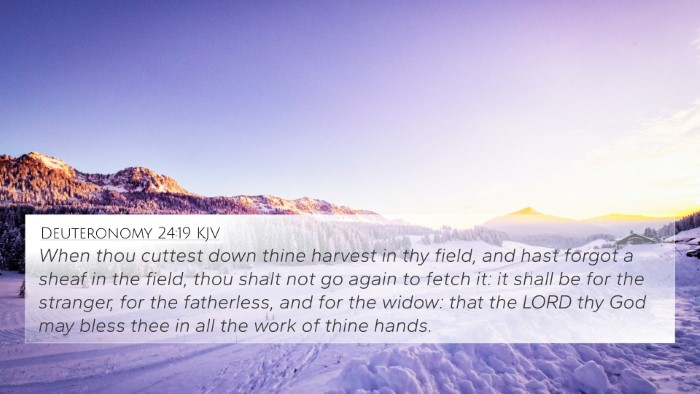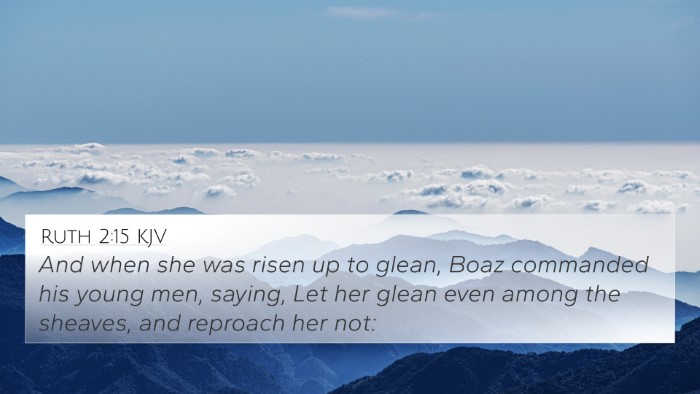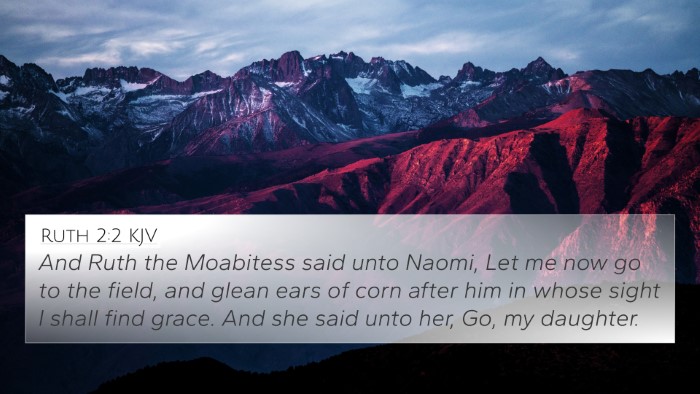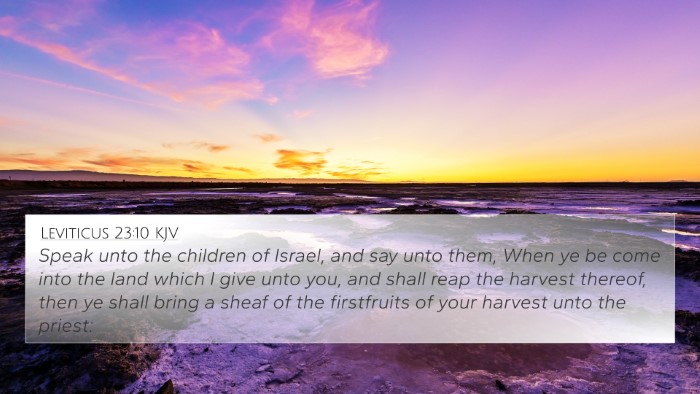Understanding Leviticus 19:9: A Deep Dive into Biblical Context
Leviticus 19:9 states: “When you reap the harvest of your land, you shall not reap your field right up to its edge, nor shall you gather the gleanings after your harvest.” This verse is a fundamental part of the Mosaic Law, which served to instruct the Israelites on justice, mercy, and generosity.
Summary of Commentary Insights
This verse carries rich insights which can be elaborated through the frameworks provided by notable public domain commentaries including those by Matthew Henry, Albert Barnes, and Adam Clarke.
Key Themes in Leviticus 19:9
- God’s Provision: The instruction to leave the edges of the field unharvested signifies God’s provision for the poor and the sojourner. Through this, He emphasizes both social responsibility and compassion.
- The Principle of Generosity: By allowing the less fortunate to glean from one's field, this practice encourages a spirit of giving and community support.
- Justice and Fairness: The text reflects a system of ethics that promotes fairness and care for the vulnerable in society.
Connections to Other Biblical Texts
There are numerous Bible verse cross-references that draw thematic links to Leviticus 19:9, highlighting the interconnectedness of scripture:
- Deuteronomy 24:19: Similar instruction regarding leaving gleanings for the poor.
- Ruth 2:2-3: Ruth's gleaning in Boaz’s field illustrates this principle in action.
- Matthew 5:16: Connects to the idea of letting our light shine through acts of kindness and generosity.
- James 1:27: Pleasing God through care for orphans and widows parallels the principle of protecting the marginalized.
- Isaiah 58:6-7: Calls for true fasting that includes sharing with the hungry and oppressed.
- Galatians 6:2: The command to bear one another's burdens resonates with the practice of providing for the needy.
- Luke 6:38: Explores the principle that giving leads to receiving, echoing themes of generosity.
Comparative Bible Verse Analysis
Analyzing Leviticus 19:9 alongside these cross-referenced verses opens discussions on themes such as social justice, divine care, and community in both the Old and New Testaments.
Tools for Bible Cross-Referencing
For those interested in exploring these themes further, utilizing tools for Bible cross-referencing can aid in understanding the broader narrative:
- Bible Concordance: A valuable resource that lists verses and allows for deep thematic studies.
- Bible Cross-Reference Guide: Designed to help locate related scriptures effectively.
- Bible Chain References: Offers a method of connecting verses thematically throughout the scriptures.
Applying This Understanding
In practical terms, reflecting on Leviticus 19:9 can guide ethical behavior within communities today. Engaging in practices that align with biblical justice encourages contemporary believers to act with compassion towards those in need.
Inter-Biblical Dialogue
This verse encourages a rich inter-Biblical dialogue through its connections to both teachings of the Torah and Jesus’ principles of love and generosity, thereby enriching our understanding of Biblical themes.
Thematic Bible Verse Connections
Exploring these thematic Bible verse connections not only enhances comprehension but also broadens the perspective on how the entire scripture interrelates.
Conclusion
Leviticus 19:9 encapsulates vital themes of care for the marginalized, social justice, and divine provision. By cross-referencing this verse with others, believers can glean insights not only about the commandments given to the Israelites but also about God's heart for humanity, a thread that runs throughout both the Old and New Testaments.
